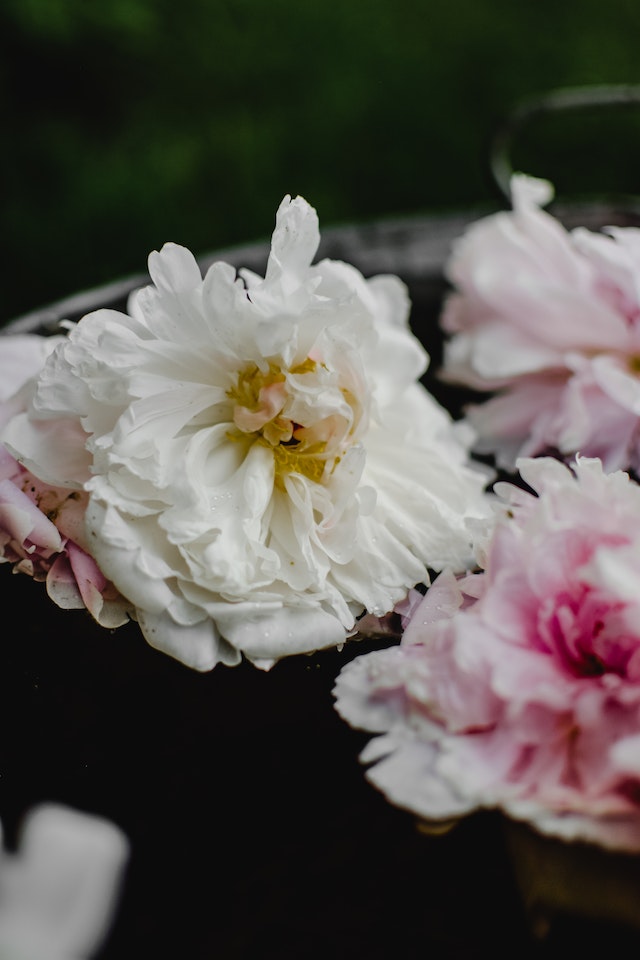Botanical Description:
Scientific Name: Stellaria media
Family: Caryophyllaceae
Common Names: Chickweed, Starwort, Winterweed
Description: Chickweed, scientifically known as Stellaria media, is a low-growing annual herb that thrives in various climates worldwide. It features slender stems bearing pairs of small, oval leaves arranged opposite each other. Delicate white flowers with five deeply lobed petals appear at the ends of the stems, giving the plant a star-like appearance. Chickweed often forms dense mats in moist, shady areas, and its ability to thrive in different conditions makes it a common sight in gardens, lawns, and natural habitats.
Disclaimer:
This Materia Medica is provided for informational purposes only and should not replace professional medical advice. Please consult with a qualified healthcare practitioner or herbalist before using any herbal remedies.
Therapeutic Actions:
- Cooling and Soothing: Chickweed is traditionally regarded as a cooling herb, making it beneficial for soothing irritated or inflamed conditions.
- Demulcent Properties: The mucilaginous nature of chickweed imparts demulcent qualities, helping to ease irritation and inflammation, particularly in the respiratory and digestive systems.
- Topical Healing: Chickweed is applied topically for its skin-soothing properties, aiding in the relief of minor skin irritations and conditions.
- Nutrient-Rich: Chickweed is a source of vitamins and minerals, contributing to its nutritional value.
Constituents:
- Mucilage: Chickweed contains mucilage, a gelatinous substance that imparts its demulcent properties.
- Saponins: Saponins are present in chickweed, contributing to its mild cleansing action.
- Flavonoids: Flavonoids, including rutin, are found in chickweed and have antioxidant properties.
- Vitamins and Minerals: Chickweed is a source of vitamins (A, C) and minerals (calcium, magnesium, potassium).
Traditional Uses:
- Respiratory Support: Chickweed is used to soothe respiratory irritation, and its demulcent properties may offer relief from coughs and bronchial discomfort.
- Skin Conditions: Applied topically, chickweed is employed for its skin-soothing effects, assisting in the management of conditions such as eczema, psoriasis, and minor wounds.
- Digestive Aid: Chickweed’s demulcent action extends to the digestive system, where it may help soothe and protect mucous membranes.
- Nutritional Support: Consumed as a food or infusion, chickweed provides a nutrient boost, contributing vitamins and minerals to the diet.
Dosage and Preparation:
- Infusion: Prepare a chickweed infusion by steeping 1-2 teaspoons of dried chickweed in hot water for 10-15 minutes. Drink up to three times a day.
- Topical Poultice: Create a poultice by blending fresh chickweed leaves and applying the mixture to the affected skin area. Leave on for 15-20 minutes.
- Salve or Cream: Chickweed salves or creams are available for topical application. Follow product recommendations or herbalist advice.
- Fresh Consumption: In salads or as a culinary herb, fresh chickweed can be added to meals for its nutritional content.
Cautions and Considerations:
- Purity of Source: Ensure that chickweed is sourced from clean, uncontaminated areas, especially if foraging for wild chickweed.
- Allergic Reactions: Individuals with known allergies to plants in the Caryophyllaceae family should use chickweed cautiously.
- Pregnancy and Lactation: Pregnant or lactating individuals should consult with a healthcare provider before using chickweed.
- Interactions: Chickweed may interact with certain medications. Consult with a healthcare provider if taking medications.
Conclusion:
Chickweed, with its delicate appearance, offers a wealth of therapeutic potential. Traditionally valued for its cooling and soothing properties, this herb has found applications in respiratory, digestive, and skin health. Whether consumed as an infusion or applied topically, chickweed provides a gentle and natural approach to supporting well-being. As with any herbal remedy, it’s advisable to consult with a qualified healthcare practitioner or herbalist, especially for individuals with specific health concerns or considerations. Integrating chickweed into a holistic health approach can contribute to overall wellness, providing relief and nourishment in various aspects of health.





